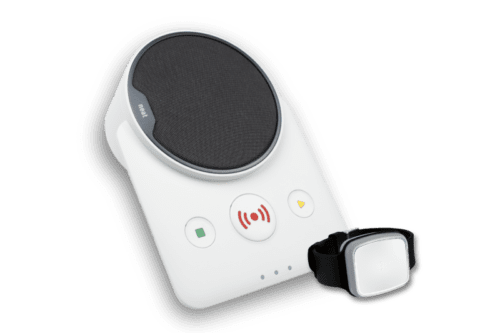Over the years, online shopping has become increasingly popular, with £586bn worth of retail sales ringing through online checkouts in 2017 alone.
In particular, the over 60’s have embraced this new retail therapy, with the UK having the highest number of seniors regularly making online purchases in Europe. For many elderly people, having the ability to order items without the need to leave their home has revolutionised their buying experience and made life somewhat easier.
Retailers and payment merchants such as Amazon and Paypal have devised ways to make that impulsive online purchase even easier. Features such as “one-click” order and pay make buying that new kitchen appliance you’ve been lusting over an effortless process.
Combatting Online Shopping Fraud
With such huge numbers, the online marketplace has been a virtual playground for fraudsters, with 42,000 incidents of online shopping fraud in the UK logged in 2018. The real figure is thought to be much higher due to people failing to notify authorities when they become a victim of online fraud due to embarrassment or the fraud going unnoticed.
In an effort to combat the huge levels of fraud and protect its customers, banks, retailers and card providers have introduced a range of measures over recent years, such as CVV and passwords. Sadly these have not been able to stem the tide of fraudulent purchases.
Payment Services Directive (PSD2) and What it Means For You.
On September 14th2019, the most comprehensive anti-fraud development will be brought into play with the introduction of the Strong Customer Authentication (SCA) process.
Banks such as HSBC and card providers like Mastercard will implement the Payment Services Directive (PSD2), in the hope to see a reduction of the amount of online shopping fraud.
The new fraud rules will mean that when you make an online purchase, your bank will send you a one-time passcode (OTP) via text message to your registered mobile. It’s estimated that this method will feature in up to 25% of online purchases, an increase from the 1% experienced today.
How the Elderly Will Be Affected
Whilst it’s designed to stamp out online shopping fraud, the PSD2 European legislation could potentially prevent elderly people from purchasing goods online. Here’s why.
Many elderly people do not own a mobile phone or are unable to receive a mobile phone signal at home. It’s estimated that around 30% of online purchases will fail. This unfortunate statistic will no doubt result in many elderly people unable to continue with their online shopping experience.
At the time of publishing, this is how the major banks and retailers plan to provide their customers with an OTP:
HSBC: SMS (text message) / Registered email
Barclays: SMS / Card reader
Natwest / RBS: SMS / Card reader
Nationwide: SMS / Card reader
TSB: SMS / Automated call to the registered home number
Amazon: SMS
The New SCA Rules
The idea behind the new legislation is to ensure its really you who is making that purchase.
So, let’s imagine you want to purchase a new washing machine. After many hours comparing prices and reading reviews, you settle on the machine you want and the online retailer you want to purchase it from.
Once you have the product in your basket you will fill out all of your normal details and click “Pay”. The online payment system will now look to “authenticate” you, using two of the following methods. This could be a combination of:
- something that only you know, such as a PIN.
- something only you have, such as receiving a text to your mobile phone.
- something personal to you, such as face recognition.
This means the retailer may ask for a combination of your password, PIN, a one-time passcode (OTP) via text or even Face ID.
Once you have gone through the two-step process, your order will be verified and that washing machine will find its way to your home as it normally would.
Importantly, low-value purchases under £30 are unlikely to be affected by the new legislation. Additionally, you may be able to set up a list of regular retailers that will be exempt from the two-step process in the future.
Before September 14th, it may be worth contacting your bank to find out which methods they’re planning on using when you’re sent your OTP. It will also give you an opportunity to update your contact details with your bank, including your mobile phone number if you have one.
If you don’t currently have a mobile phone, now may be the time to take the plunge and purchase an easy to use Pay As You Go mobile phone. You can check the coverage at your home using OFCOM’s coverage checker.
That way, when you come to buy your personal alarm online, you won’t have to abandon your online shopping cart.




